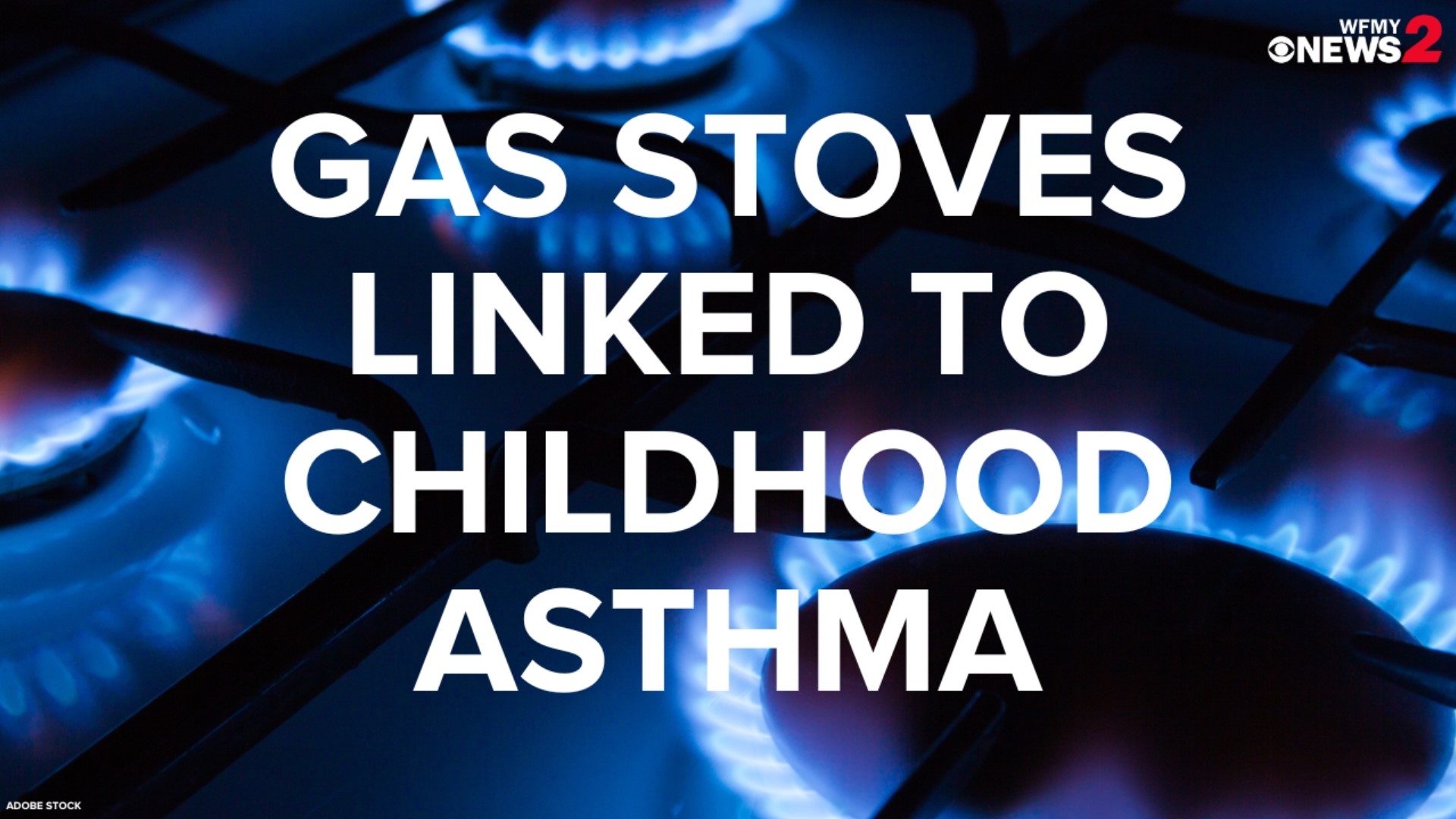GREENSBORO, N.C. — There are an estimated 40 million homes in our country that use a gas stove. You may have heard that the head of the Consumer Product Safety Commission was thinking about banning them. He's backed off of that, but the concerns about gas stoves still remain.
A study published in the International Journal of Environmental Research and Public Health reports that almost 13% of childhood asthma in the US can be attributed to gas stove use.
The stove emits air pollutants like methane and nitrogen oxides that can cause respiratory diseases in kids and can inflame already present illnesses in adults.
“People with respiratory disorders are the ones at the greatest risk. So people with asthma, COPD, or any other chronic lung condition, that this could be an irritant to them and flare things up,” said Dr. Todd Mahr, an Allergist-Immunologist.
The idea of 40 million households having to rip out their gas stove to buy an electric one, and switch all wiring is crazy to think about and expensive.
We're not there yet, but for right now, if you have a gas stove in your home there are things you can do to lessen the pollutants.
“Use it with your exhaust fan on. If you don't have an exhaust fan and have a window nearby, you can crack it open temporarily to really allow some of that to get out of your house," said Mahr.
Consumer Reports did its own testing of gas stoves, you can find their research here. When it comes to what to do if you have a gas stove, CR recommends:
“You would never drag your gas grill into your kitchen to make dinner,” says James Dickerson, Ph.D., CR’s chief scientific officer, “but in effect, cooking with a gas stove comes with some of those same risks.”
So think of ventilating as a crucial part of your cooking routine. Take these steps:
- Use your range hood every time you cook, even if you’re just boiling an egg.
- If you don’t have a range hood, buy one and have it installed, preferably right above your range. That was more effective than vents or fans placed elsewhere, Kapoor says.
- Open windows and doors if you can, and use a fan. It’s best if the fan vents outside, but any fan that circulates the air can help the gases dissipate.

